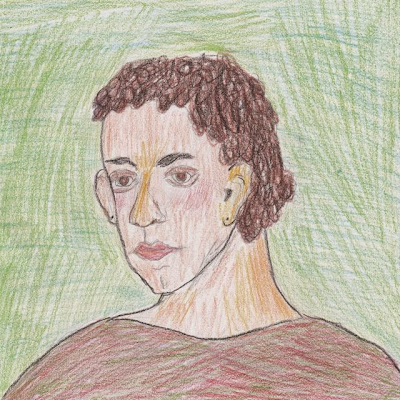"Counting Potsherds" is a story by Harry Turtledove, originally published in 1989 and included in his 1993 collection Departures. It’s set in an alternate version of Greece in the early 2nd century BCE in which Greece had lost to the Persian invaders several centuries earlier.
Mithredath is introduced to the reader as a eunuch who speaks in “a nameless tone between tenor and contralto” that is “cool, precise, and intelligent.” He also introduces himself to others as a eunuch — a saris. He is the servant of Khsrish, the Persian king who defeated the Greeks, and a worshipper of Ahura Mazda. He has learned to keep his cards close to his vest. On this journey, he is served by a Phoenician captain named Agbaal.
(One might note that “employment of eunuchs in top positions was so frequent in some Near-Eastern monarchies that the term eunuch sometimes, as in Hebrew, for example, lost its original meaning and was used as a synonym for court official or minister, regardless of whether these men were true eunuchs or not.” "The Political Functions of Eunuchism." Lewis A. Coser. American Sociological Review, Vol. 29, No. 6 (Dec., 1964), pp. 880-885 (6 pages) https://doi.org/10.2307/2090872 https://www.jstor.org/stable/2090872 Quotation from p. 880. However, in this story, he is indeed a beardless eunuch.)When Mithredath meets Lord Vahauka, he is introduced to the “clean-shaven” Hermippos. Hermippos is not “his own kind” (i.e., he’s not a eunuch), and Mithredath reflects on how rare it is for him to meet a clean-shaven man: “Not being the only beardless person present made him feel extraordinarily masculine.”
Vauhaka sends away the scantily clad girl musicians, saying publicly that his guest Mithredath “will not miss them in any way.” Mithredath recognized this as “a sly dig at his condition,” and since “eunuchs’ memories for slights were notoriously long,” he might have his revenge on Vauhaka, but during this hearing, “Mithredath remained the soul of courtesy.”
One of Vauhaka’s men, Polydoros, who is bilingual in Aramaic and Greek, leads Mithredath uphill to an akropolis that Khsrish destroyed. Mithredath sacrifices a sheep by cutting its throat, explaining to Polydoros that the god Ahura Mazda doesn’t require any special ritual and lets people keep all the meat from the animal.
It is gradually revealed that the purpose of Mithredath’s journey is to discover the name of a king of Athens. He’s hoping to find it on an inscription on the akropolis. He didn’t want to fail in his expensive quest. “Nothing was more dreadful for a eunuch—for anyone, but for a eunuch especially—than losing the favor of the King of Kings.” He’s almost ready to give up, but they find names written on pieces of broken pottery scattered around, and he begins to piece together a political history.
Back at Vauhaka’s court, he’s taunted as “no-stones” and “no-balls.” Vauhaka tells him that a rival, Kurdish, had “overthrown and slain your worthless Khsrish the day you left...Now we have a real King of Kings again, and now I don’t have to toady to a half-man anymore, either.”





No comments:
Post a Comment